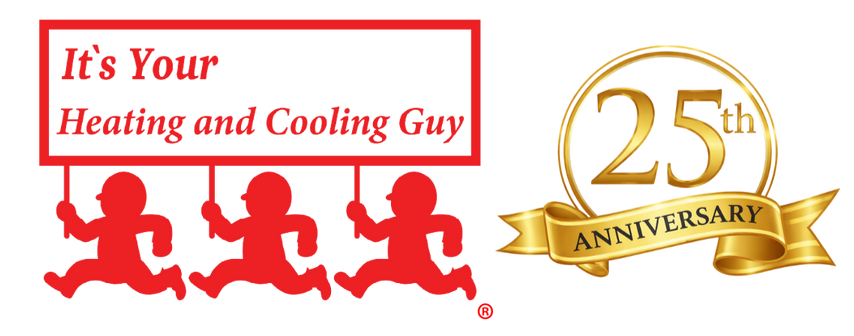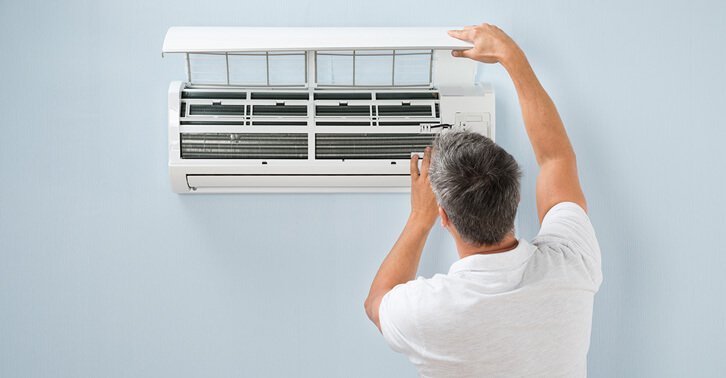Separating the Facts From Fiction
Heating, ventilation, and air conditioning (HVAC) systems are essential for maintaining comfort and indoor air quality in our homes. However, there are numerous myths and misconceptions surrounding HVAC systems that can lead to confusion and misinformation. To help homeowners make informed decisions about their HVAC systems, let’s debunk some of the most common myths:
Myth 1: Closing vents in unused rooms saves energy.
Many people believe that closing vents in unused rooms will save energy by redirecting airflow to other areas of the home. However, this practice can actually do more harm than good. HVAC systems are designed to distribute airflow evenly throughout the home, and closing vents can disrupt this balance, causing pressure imbalances and potentially damaging the system. Instead of closing vents, consider adjusting the temperature settings in individual rooms or investing in a zoning system for more precise control.
Myth 2: Bigger HVAC systems are better.
It’s a common misconception that a larger HVAC system will provide better heating and cooling performance. In reality, an oversized system can lead to short cycling, uneven temperatures, and increased energy consumption. HVAC systems should be sized according to the specific heating and cooling needs of the home, taking into account factors such as square footage, insulation, and climate. A properly sized system will provide optimal comfort and energy efficiency without unnecessary costs or complications.
Myth 3: Turning up the thermostat will heat or cool the home faster.
Many people believe that cranking up the thermostat will speed up the heating or cooling process and bring the home to the desired temperature more quickly. However, HVAC systems operate at a consistent rate regardless of the temperature setting, so turning up the thermostat will not accelerate the heating or cooling process. In fact, it may lead to overshooting the desired temperature and wasting energy. Instead, set the thermostat to a comfortable temperature and allow the HVAC system to work efficiently.
Myth 4: Regular maintenance is unnecessary for new HVAC systems.
Some homeowners assume that because their HVAC system is new, it doesn’t require regular maintenance. However, all HVAC systems benefit from routine maintenance to ensure optimal performance, efficiency, and longevity. Regular maintenance helps prevent breakdowns, identify potential issues early, and keep the system running smoothly year-round. Neglecting maintenance can lead to reduced efficiency, higher energy bills, and premature system failure, negating any cost savings from a new system.
Myth 5: Changing the air filter once a year is sufficient.
Many homeowners underestimate the importance of regularly changing the air filter in their HVAC system. While it’s true that air filters should be replaced regularly, once a year is not sufficient for most homes. Depending on factors such as indoor air quality, pet dander, and occupancy, air filters should be checked and replaced every one to three months to ensure optimal performance and indoor air quality. Neglecting to change the air filter can lead to reduced airflow, increased energy consumption, and poor indoor air quality.
Myth 6: Closing doors and vents will save energy.
Closing doors and vents in unused rooms is a common practice believed to save energy by reducing the area that needs to be heated or cooled. However, this can actually disrupt the airflow and pressure balance in the home, leading to inefficiencies and potential damage to the HVAC system. Instead of closing doors and vents, consider using programmable thermostats, zoning systems, or smart HVAC controls to adjust temperature settings in individual rooms and optimize energy usage without compromising comfort.
By debunking these common HVAC myths, homeowners can make more informed decisions about their heating and cooling systems, optimize energy usage, and ensure optimal comfort and indoor air quality year-round. If you have any questions or concerns about your HVAC system, don’t hesitate to consult with a qualified HVAC professional for expert advice and assistance.

Bob Ventura
Author
Bob Ventura is a seasoned author with a passion for helping homeowners take better care of their properties through practical, easy-to-understand content. With years of experience writing about home maintenance, Bob specializes in breaking down complex repair and upkeep tasks into simple, actionable steps that readers can confidently follow. His work covers everything from seasonal checklists and preventative care to troubleshooting common issues and improving energy efficiency.


Recent Comments